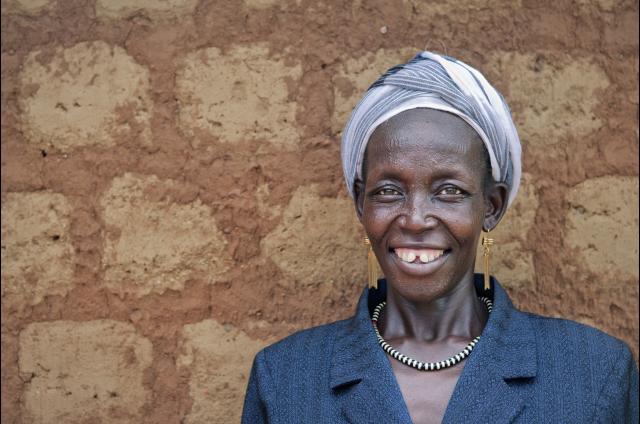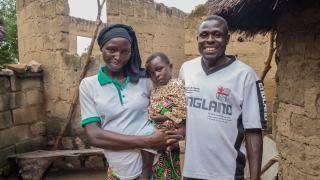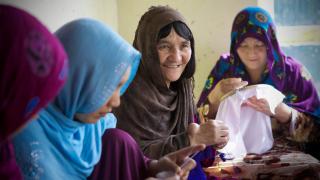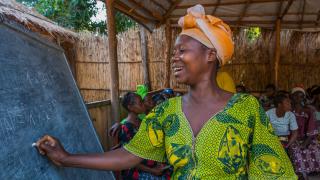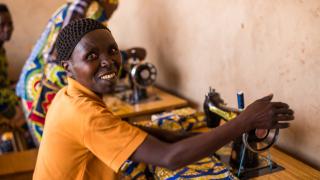Women's Rights and Development
Women overwhelmingly bear the brunt of poverty
Women face multiple barriers in accessing economic opportunities, including discrimination in school and in the work place.
Where women are employed in developing countries, they are more likely than men to be in vulnerable, informal sector, or low-paid jobs where they enjoy little protection from labour laws or policies. Regardless of paid work, women (and girls) continue to bear overwhelming responsibility for household care. With this dual demand on their time (paid and unpaid work) women have less time for education, political participation or other opportunities and contributions are undervalued: the experience of poverty is not just economic. The women we work with live in extreme poverty in fragile contexts whilst working their hardest to put food on the table and their children in school: they do so in the toughest of situations. In Afghanistan, women in some communities are not allowed to leave their house without an escort because they are women. In the eastern Democratic Republic of Congo, women are prohibited from owning or making decisions about the land they work because they are women. In the Kurdistan Region of Iraq, Yezidi women have been forced to flee their homes. During ISIS' reign of abuse and terror, they have been specifically targeted for sexual violence because they are women.
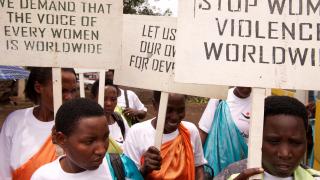
Our work with the Global Goals
Women overwhelmingly bear the brunt of poverty and are often denied economic opportunities. Prioritising women’s rights is key to delivering the Global Goals – the international development framework that promises to deliver for those left furthest behind.
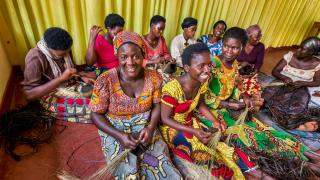
Delivering the Global Goals
This document situates key data gathered from women graduates of our work in 2016 within the framework of the Goals. By sharing this data, we aim to highlight the magnitude posed by the ‘leave no one behind’ challenge and how it can be effectively addressed.
Read the 2017 report cards
Delivering the Global Goals: Nigeria
subtitle:
Delivering the Global Goals: Afghanistan
subtitle:
Delivering the Global Goals: DRC
subtitle:
Delivering the Global Goals: Rwanda
subtitle:
Why are they important?
The Goals represent an opportunity for the international community to implement catalytic changes for those who need them most, making the specific commitment to ‘leave no one behind’. This means that the Goals cannot be considered a success unless they are met for everyone.
As an organisation with more than twenty years’ experience working with marginalised women survivors of conflict, we know how important this focus is. It is crucial that we continue to provide support to women, helping them move from poverty and isolation to self-sufficiency and empowerment. We are delighted to be partnering with the Clinton Global Initiative in the US, as well as Bond and the Gender and Development Network in the UK to support effective implementation of the Goals internationally.
There are three key ways we are contributing to the Goals.
Reaching survivors of conflict
We have worked with more than 479,000 marginalised women survivors of conflict across the world and are continuing our investment in them.
This includes stepping up our work to respond to the Syria crisis.
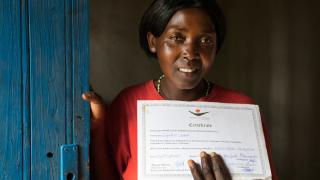
Filling the data gap
We collect in-depth data from a large sample of participants to gauge women’s progress through the programme as well as one and two years after graduation.
While the data we collect are focused exclusively on marginalised women survivors of conflict (and therefore not nationally representative) it can provide a valuable snapshot to help national and international policymakers understand hard-to-reach populations.
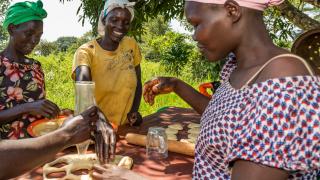
Amplifying voices
For the women we serve, being marginalised is a lived experience that includes being denied access to opportunities and having a say over the decisions that affect their lives.
We are therefore providing select graduates with training in leadership and advocacy; continuing to work with men in communities to enable them to become champions for gender equality; working with local NGOs to support their work and create opportunities for women; and influencing decision-makers and the debate internationally, using our evidence base and the voices of the women we work with to change policy and practice.

